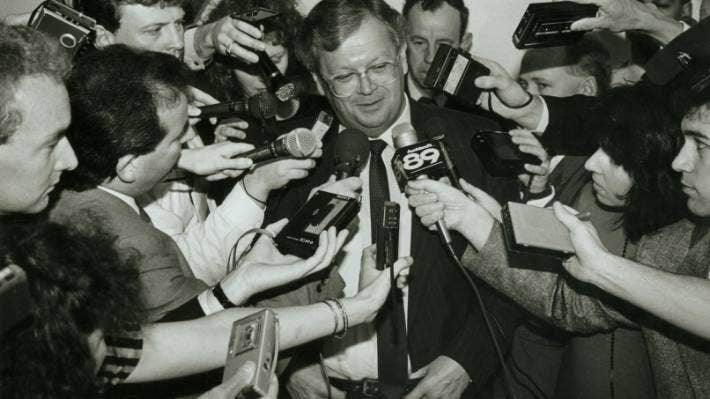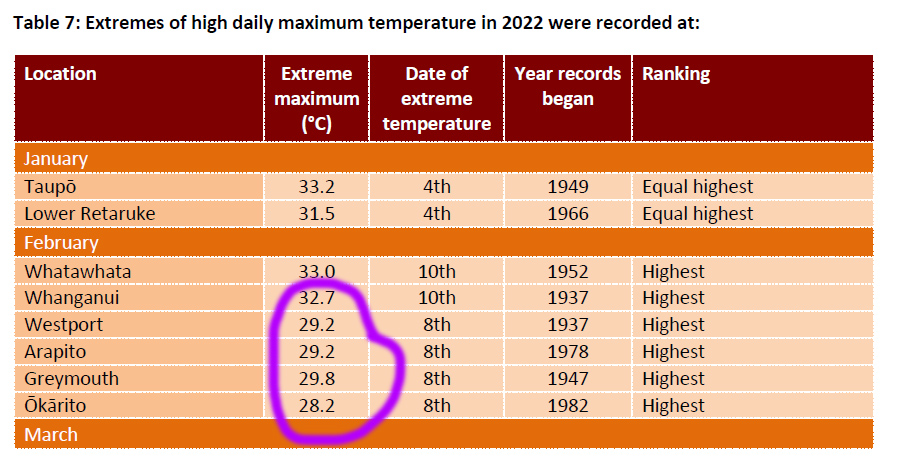
SPIN CITY
ALAN ANDERSON
John Howard has a long way to go to truly remake Australian society
Fresh from his fourth successive elec-tion victory, John Howard is politically ascendant. Learned commentators who only months ago were waxing lyri-cal about the visionary qualities of Mark Latham are now consigning Labor to the dustbin of history. The Coalition eagerly awaits its Senate majority in July. And Howard’s mate George W. Bush has handily won another four years in the White House.
Australian conservatives might be forgiven a little triumphalism as they reflect on the past year.
Yet there is still plenty to give the Right pause. For while Howard has won many battles, it is far from certain that he is winning the war to really transform Australian culture – or even that he will fight it.
Howard has been a champion of two great political causes: a broad-based consumption tax and industrial relations reform. The former is a battle won. The latter has been partially implemented and will advance significantly once the Coalition’s Senate majority takes effect. What next?
The answer is obvious to some. Led by Senator Mitch Fifield and Sophie Panopoulos MP, a vocal group of Liberal parliamentarians is challenging Howard to implement desperately needed reforms to the nation’s confiscatory income tax regime and its counterproductive welfare system.
But Howard’s response has been to hose down expectations of change, cautioning that it’s “a question of striking the right balance”. Unless the PM’s idea of balance is that we go halfsies with government, it is difficult to defend the status quo. After profligate campaign spending, it is frightening to imagine that projected surpluses of $24 billion over the next four years might fund further expansion of Australia’s bloated public sector.
Of course, it’s possible that Howard’s moderate rhetoric conceals radical intentions. After all, Peter Costello’s last budget included a politically risky change to tax thresholds at the top end of the spectrum. But it is not just in economic policy that reform is in jeopardy.
Australian conservatives have been beguiled by vast tracts of left-wing commentary bemoaning the Right’s victory in the “Culture Wars”. In the memorable words of the PM, “Hello? Hello?”
But let’s check the other side of the ledger.
Taxpayers continue to fund the arts and film industries which churn out politicised material like the disingenuous Rabbit Proof Fence and display a tedious conformity of views. The need for subsidy springs from the fact that only a handful of insiders want to view the art or watch the films. And surely the very idea of a panel of government-appointed commissars doling out cash to whomever satisfies their definition of “art” is anathema to alleged Liberal values. So what have nine years of conservative govern-ment achieved?
Barring a handful of outcasts, dissent amongst the so-called intellectuals in our universities is akin to a power struggle between the Maoists and the Marxist-Leninists, with a few post-modern onanists thrown in for good measure. Vindictive personal attacks on the likes of Keith Windschuttle are matched by the less-publicised persecution of students who dare to challenge the established orthodoxy, making a mockery of the Enlightenment values of free inquiry that universities are meant to celebrate.
Judging by voting patterns, the socialist dinosaurs of academia are well to the left of the students they teach. A full-blown voucher system would introduce market forces to the sector and end their oligopoly. Yet the Government merely tinkers at the edges of the HECS system. So what have nine years of conservative government achieved?
Our public broadcasters rival Cuba’s Granma in their anti-Americanism, while proudly declaring their domestic impartiality because they attack both major parties equally – from the left. John Howard’s appointments to the ABC include the entire current board, save for the staff rep.
With the exception of former member Michael Kroger, every one of his appointees were captured by the institution, leading to the coup d’état against reformist managing director Jonathan Shier and his replacement with a lacklustre insider. So what have nine years of conservative government achieved?
The half-hearted debate about values in schools has merely emphasised the continued domination of the teaching profession and education bureaucracy by moral and cultural relativists who see their job as indoctrinating the young with fashionable multi-culti pietie, from which quaint pursuits such as grammar and arithmetic are an unwelcome distraction. Here the government has made a tiny step in the right direction, with the introduction of an experimental voucher system to enable failing students to seek help from the private sector.
But it’s a case of one step forward, two steps back. The Government is introducing a national curriculum which will doubtless be corrupted by the education bureaucrats. Even if, by some miracle, it is not, the centralised system will eliminate competition between states and pave the way for the next Labor government to implement Carmen Lawrence’s dream of an education system that indoctrinates children into communism – sorry, social justice. Again, what have nine years of conservative government achieved?
Conservative electoral success masks an underlying failure to win key battles over the size of government and the politicised nature of key public institutions. If he is to reverse this failure in his fourth term, John Howard will need to embrace measures more radical than he has shown the stomach for thus far. If he does not, his much-vaunted reshaping of Australian society will prove as ephemeral as a sand







